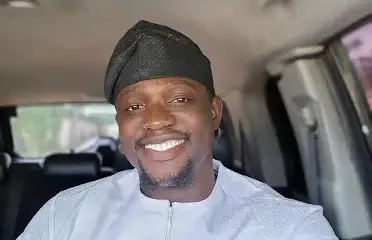In recent times, the Nigerian political and social media space has been buzzing with debates about the true intentions of Martins Otse, popularly known as VeryDarkMan (VDM).
The controversial social media commentator has gained notoriety for his outspoken critiques of celebrities, influencers, and public figures.
However, many Nigerians are questioning whether VDM is genuinely an independent voice or a government-sponsored agent designed to distract the youth from pressing national issues.
This article critically examines the allegations against Martins Otse, analyzing his rise to fame, his content focus, and the possible implications of his activism, if it can even be called that.
The Rise of VeryDarkMan (VDM)Martins Otse, aka VDM, emerged as a prominent figure on social media, particularly on TikTok and Instagram, where he gained a massive following due to his unfiltered commentary.
His often aggressive and confrontational approach resonated with many young Nigerians frustrated with societal hypocrisy, celebrity culture, and perceived injustices.
READ MORE: Nigeria On The Path To A One-Party System: A Dangerous Political Shift?
VDM positioned himself as a truth-teller, calling out corruption, fraud, and misconduct among public figures. His fearless demeanor earned him both admirers and detractors.
However, as his influence grew, so did skepticism about his motives.
The Allegations: Is VDM a Government Mole?
Several factors have fueled suspicions that VDM may be a government agent or a tool for distraction. These include:
1. Selective Criticism
Critics argue that VDM focuses disproportionately on entertainment figures and minor social issues while avoiding substantive discussions on government failures.
Nigeria faces severe challenges, economic hardship, insecurity, unemployment, and poor governance, yet VDM’s content rarely addresses these directly. Instead, he often engages in celebrity feuds, exposing personal scandals rather than systemic corruption. This has led some to believe that his activism is a smokescreen to divert attention from more critical national issues.
2. Lack of Substantive Political Engagement
While VDM claims to fight for justice, he has not been seen actively engaging in movements that challenge government policies.
Unlike activists such as Omoyele Sowore or Aisha Yesufu, who directly confront political leaders, VDM’s battles are mostly with influencers and celebrities. This avoidance of political discourse raises questions: Is he deliberately steering conversations away from governance? Is he being incentivized to keep the youth distracted with trivial controversies?
3. Sudden Fame and Possible Backing
VDM’s rapid rise to prominence has also raised eyebrows. Social media algorithms favor certain voices, but the speed at which he gained traction suggests possible external support. Some speculate that government or opposition elements may be promoting his content to keep young Nigerians engaged in entertainment drama rather than demanding accountability from leaders.
4. Government’s History of Co-opting Influencers.
The Nigerian government has a documented history of using influencers and media personalities to shape public opinion.
During the #EndSARS protests, some celebrities and social media figures were allegedly co-opted to downplay the movement. Given this precedent, it is not far-fetched to suspect that VDM could be part of a larger strategy to control youth narratives.
Counterarguments: Is VDM Genuine?
Despite the allegations, some supporters argue that VDM is simply a product of social media trends; a commentator who thrives on controversy without hidden agendas.
They claim that his focus on entertainment is a natural consequence of what generates engagement online, not necessarily a deliberate distraction tactic.
Additionally, VDM has occasionally spoken on national issues, though these instances are few compared to his celebrity-centric content. His supporters insist that his approach, exposing fraud and hypocrisy, is a valid form of activism, even if it doesn’t align with traditional political advocacy.
The Bigger Picture.
Youth Distraction in Nigeria
Whether or not VDM is a government mole, the broader issue remains: Nigerian youth are increasingly being distracted from critical national discourse. Social media, while a powerful tool for activism, is also a battleground for misinformation and diversion.
1. Celebrity Culture Over Governance.
Nigerian social media is saturated with celebrity gossip, influencer drama, and viral trends, often overshadowing discussions on poverty, insecurity, and unemployment. While entertainment is important, an overemphasis on it can desensitize the public to more urgent matters.
2. The Role of Government and Opposition
If VDM is indeed being used as a distraction tool, it would not be an isolated case. Governments worldwide have employed similar tactics, using media personalities to shift public attention from failures.
In Nigeria, where youth mobilization has proven powerful (as seen during #EndSARS), controlling the narrative is a strategic move for those in power.
3. The Responsibility of Influencers
Public figures like VDM have a responsibility to balance entertainment with education. While calling out fraud is commendable, ignoring systemic issues undermines true activism. If influencers avoid political discourse, they risk becoming unwitting tools of distraction.
A Call for Critical Engagement The debate over Martins Otse’s true intentions highlights a deeper problem: the Nigerian youth’s engagement with socio-political issues.
Whether VDM is a government agent or simply a controversial commentator, the effect remains the same: less focus on governance, more on entertainment. Nigerians, especially the youth, must remain vigilant.
While social media commentary can be entertaining, it should not replace active participation in nation-building. The real enemies are not just scammers and dishonest influencers but also corrupt leaders and failing systems.
If VDM is truly for the people, he must expand his focus to include more substantive national issues. If not, the public must recognize the potential distraction and refocus their energy on demanding accountability from those in power.
The choice is ours: Will we continue to be entertained by drama, or will we rise to the challenge of shaping Nigeria’s future?

